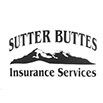Answers to Your Most Frequently Asked Questions About Wildfire Coverage
September 21, 2020
With wildfires blazing across the west, we asked the insurance experts at Grange Insurance Association to address some of your most frequently asked questions about wildfire coverage.
Homeowners Insurance: What is Covered in a Wildfire?
Generally speaking, the structure of your home, your personal belongings, and an interim place to live, including your additional living expenses are covered by most standard Homeowners insurance policies. While a standard Auto policy does not typically cover fire damage, if you opted in for more comprehensive coverage, your car may also be covered.
In some cases, Homeowners insurance in fire prone areas may be limited, as insurance companies could be unwilling to take on the risk. In that case, you may have to add a high-risk fire insurance policy from a FAIR (Fair Access to Insurance Requirements) Plan or a surplus lines carrier.
What is a Wildfire Evacuation Plan & How Do I Create One?
For anyone wondering how to prepare for a wildfire, one of the most important things you can do is create a wildfire evacuation plan and an evacuation checklist.
Evacuation Plan Basics
Make sure your evacuation plan includes a designated meeting area and a communication procedure. Generally speaking, your designated meeting area should be outside of the danger zone, and you should plan alternative routes to get there. For ease of communication, choose a friend or family member outside of the danger zone to be the point of contact between separated parties. Be sure to keep cell phones fully charged if evacuation is on the horizon.
Evacuation Checklist Basics
Your evacuation checklist can prevent you from forgetting important tasks or belongings when faced with a mandatory evacuation. Some common things to include on your evacuation checklist are fire extinguishers, your “go bag” and/or any emergency supply kits you’ve put together, any medication, and any valuables you want to bring with you. Before you evacuate, you’ll also want to make sure to turn off gas, electric, and water mains.
Do I Get Reimbursed If I Evacuate my Home Even When it’s not Mandatory?
No. However, if your home is under mandatory evacuation, your policy’s Loss of Use coverage can be triggered, even if your home hasn’t suffered any damage as a result of the wildfire. In other words, if you’re under mandatory evacuation orders, your additional living expenses (i.e. hotel expenses, food expenses, etc.) will likely be covered, though many Homeowners policies do require you first meet your deductible. It’s important to note that limits exist, so once you’re safe and sound, contact your agent for clarifications about your coverage.
Additionally, if a civil authority prohibits you from returning home as a result of direct damage to neighboring premises, many standard policies will cover your additional living expenses and fair rental value for no more than two weeks, assuming the damage is caused by a covered peril.
Who Do I Contact If My Property was Impacted by a Wildfire?
It depends. If you’re in immediate danger from the wildfire and need assistance, contact 911. Once you’ve safely evacuated, you’ll want to contact your insurance agent. Not only can they help you file any necessary claims, but they can help answer any questions you might have about your coverage. If you need further assistance after a wildfire has devastated your home, contact your local American Red Cross, FEMA, or any other government or community organizations that might be able to offer food, shelter, or other assistance.
If you have questions about your Grange Insurance Association policy, contact your independent insurance agent today.
The content available via Grange.com is for informational purposes only and may not be used for any other purpose. Content provided or expressed on Grange.com, including that of third parties, may not reflect Grange Insurance Association’s (GIA) policies or conform to any agreement you may have with GIA and its subsidiary companies. Please contact a licensed insurance agent to obtain particular advice.




































































































































































































































